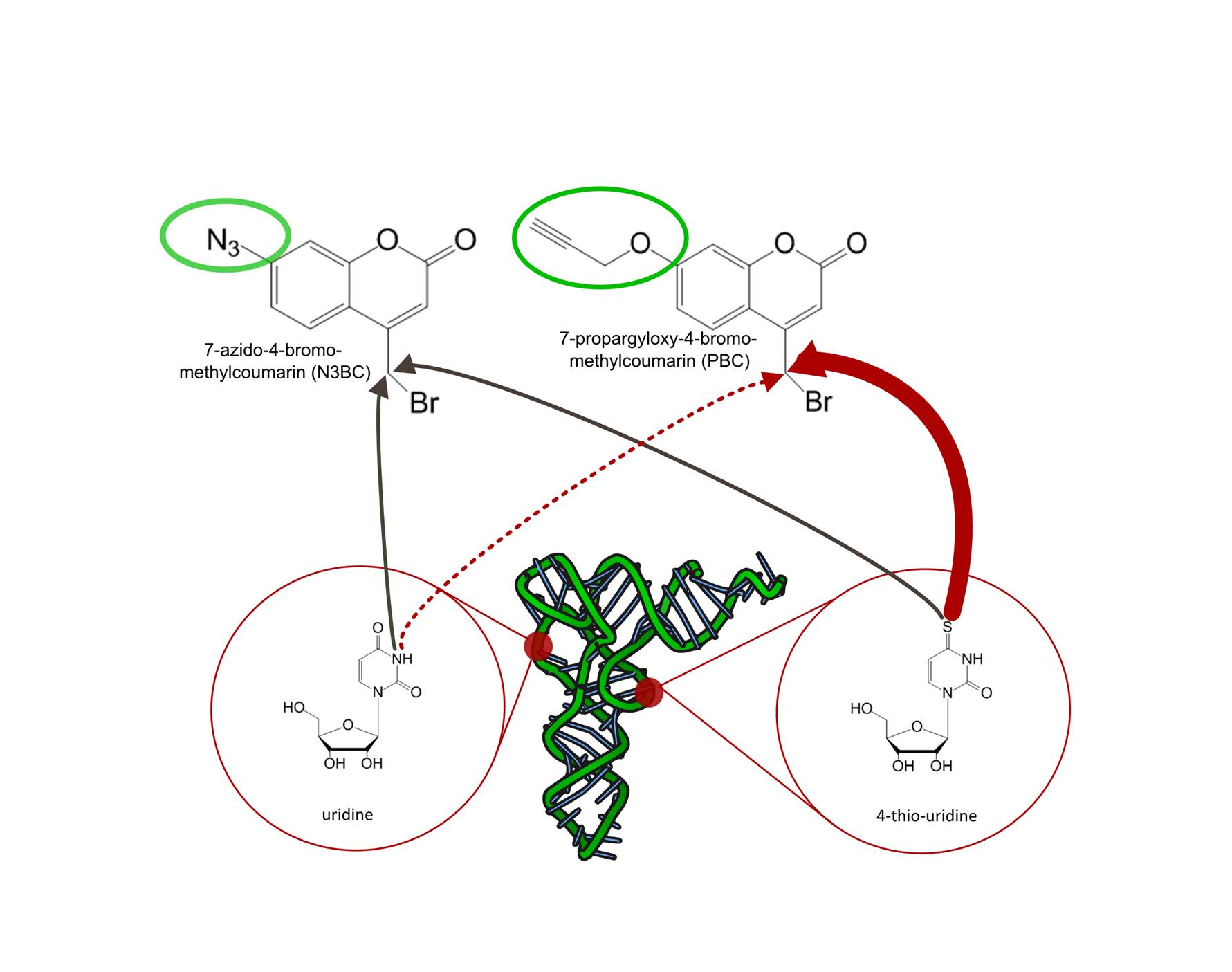Katharina Schmid
Labeling of modified and unmodified nucleosides is of paramount importance in life sciences, to enable continuative analytical steps. Posttranscriptional functionalization with small molecules is onekopportunity to achieve this goal. Here, bromocoumarins proved to be adequate alkylating agents for nucleic acids by performing an SN reaction in position 4. Depending on the substitution pattern in position 7 the coumarin shows various reactivities. While 7-propargyloxy-4-bromomethylcoumarin (PBC) is highly selective for the modified ribonucleoside 4-thiouridine (s4U), 7-azido-4-bromomethylcoumarin (N3BC) serves as a general nucleic acid label, like 7-azido-4-bromomethylcoumarin). The free alkyne or respectively azido residue (position 7) can further be used for additional bioconjugations3.
